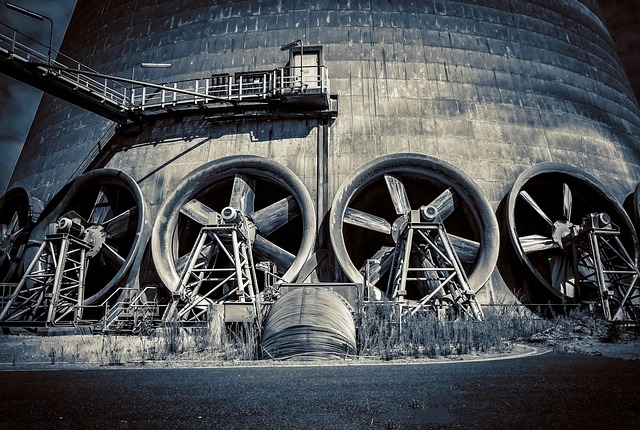Neglected AC units can foster mold growth due to damp and humid conditions, posing health risks and damaging structures. Professional HVAC mold remediation services use specialized equipment and techniques for thorough spore removal, containment, and prevention of cross-contamination. Post-remediation testing ensures effective elimination. Regular inspections, maintenance, water damage mitigation, and seasonal checks by professionals are key to preventing future ac unit mold issues.
In the heart of your home or commercial space, the AC unit works tirelessly, only to become a breeding ground for mold if not properly maintained. Understanding the subtle signs of AC unit mold issues is key to preventing health hazards and costly repairs. This article delves into the intricacies of professional HVAC mold remediation services, highlighting why it’s crucial to address these problems promptly. From identifying infestations to safe remediation techniques, we provide a comprehensive guide for a healthy, mold-free environment.
- Understanding AC Unit Mold Issues
- Why Professional HVAC Remediation is Crucial
- Identifying and Assessing Mold Infestations
- Safe and Effective Remediation Techniques
- Restoring Your HVAC System Post-Remediation
- Preventing Future AC Unit Mold Problems
Understanding AC Unit Mold Issues

AC units, due to their constant interaction with outdoor air and subsequent cooling process, can become breeding grounds for mold growth if not maintained properly. Mold thrives in damp, humid environments, and an improperly maintained AC unit provides exactly that—a warm, moist haven for mold spores to proliferate. This is particularly problematic as AC systems distribute these spores throughout a building’s indoor air, posing health risks to occupants.
Regular inspections and maintenance are crucial to mitigate ac unit mold issues. Professionals employ specialized equipment to detect even trace amounts of mold and use targeted remediation techniques to remove it completely. By addressing AC unit mold problems promptly, individuals and organizations can ensure a healthier indoor environment, reduce the risk of structural damage, and maintain optimal HVAC system performance.
Why Professional HVAC Remediation is Crucial

Professional HVAC (heating, ventilation, and air conditioning) mold remediation services are crucial for several reasons, especially in addressing AC unit mold issues. Mold growth within HVAC systems can have severe health implications, as it releases harmful spores that circulates throughout a building whenever the system is operational. This is particularly dangerous for individuals with respiratory conditions or allergies, making professional intervention essential to mitigate these risks.
Moreover, ac unit mold issues often require specialized equipment and expertise to detect and remove effectively. Professional services utilize advanced tools and techniques tailored for HVAC systems, ensuring comprehensive mold removal while minimizing damage to the unit. They also provide post-remediation verification tests to guarantee that the problem has been resolved, protecting both building occupants and property value from potential future mold outbreaks.
Identifying and Assessing Mold Infestations

Identifying and assessing mold infestations is a crucial step in professional HVAC mold remediation services. It involves thoroughly inspecting the affected area to pinpoint the extent of the mold growth, which can often hide behind walls, under flooring, or within intricate AC unit components. Trained technicians use specialized equipment and knowledge to detect mold spores, checking for visible signs like discolored spots, musty odors, or distorted materials. Once identified, they assess the type and severity of the infestation, considering factors such as moisture levels, air circulation, and structural damage, which are key drivers of mold growth.
This process is essential for effective remediation because it allows professionals to tailor their strategies accordingly. They may employ advanced testing methods to confirm the presence and types of mold, ensuring that all sources are addressed. Moreover, understanding the unique challenges posed by AC unit mold issues enables technicians to implement appropriate containment measures, prevent cross-contamination, and select the most suitable remediation techniques for optimal results, restoring a healthy environment for occupants and preserving the integrity of HVAC systems.
Safe and Effective Remediation Techniques

Professional HVAC mold remediation services employ safe and effective techniques to address AC unit mold issues comprehensively. These methods include air filtration systems that capture microscopic mold spores, ensuring they don’t circulate back into living spaces. Specialized cleaning solutions are utilized to kill existing molds and prevent future growth. The process involves rigorous decontamination, removing contaminated materials, and applying antimicrobial treatments to inhibit mold resurgence.
Skilled technicians also take meticulous steps to contain the moldy area, using barriers and negative pressure to prevent cross-contamination. Proper disposal of affected materials ensures that no mold remnants are left behind. These advanced remediation techniques not only restore indoor air quality but also safeguard the health and well-being of occupants, eliminating ac unit mold issues effectively.
Restoring Your HVAC System Post-Remediation

After successful mold remediation, restoring your HVAC system is crucial to ensure optimal performance and air quality. Begin by inspecting all components, paying close attention to any signs of water damage or mold growth. Replace affected parts, such as filters, coils, or ductwork, to prevent further contamination.
Regular maintenance is key to keeping your AC unit free from mold issues. Schedule routine checks with professionals who can identify potential problems early on. This proactive approach not only extends the lifespan of your HVAC system but also maintains a healthy indoor environment, ensuring clean and fresh air for occupants.
Preventing Future AC Unit Mold Problems

To prevent future AC unit mold problems, regular maintenance is key. Starting with seasonal check-ups can help identify potential moisture issues or signs of mold growth early on. Professional HVAC technicians can perform thorough inspections, clean air filters, and ensure proper ventilation throughout your home’s cooling system. This proactive approach not only extends the lifespan of your AC unit but also enhances indoor air quality by eliminating allergen-causing molds.
Additionally, addressing any water leaks or high humidity levels in your home is crucial. Promptly repairing leaky pipes, improving ventilation in damp areas, and using dehumidifiers when necessary can significantly reduce moisture buildup—a primary factor in AC unit mold growth. Regular cleaning and maintenance, combined with these preventive measures, will contribute to a healthier, more comfortable living environment, keeping AC unit mold issues at bay.
